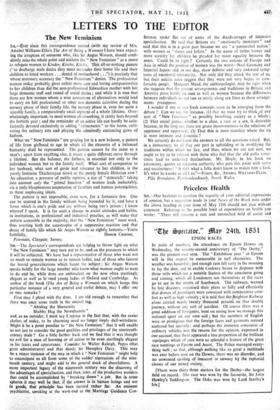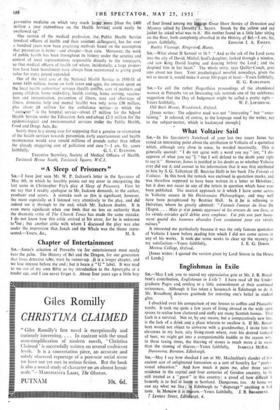Priceless Health SIR.—One hesitates to question the sagacity of your
editorial expressions of opinion, but a suggestion made in your News of the Week note under the above heading in your issue of May 11th should not pass without comment. Referring to the possible limit of expenditure on health you wrote: "There still remains a vast and untouched field of social and
preventive medicine on which very much large: stuns [than the £400 million a year expenditure on the Health Service] could easily be swallowed up."
One section of the medical profession, the. Public Health Service (medical officers of health and their assistant colleagues), has for over a hundred years now been practising methods based on the assumption that prevention is better—and cheaper—than cure. Moreover, the work of public health has been throughout its history under the scrutiny and control of local representatives responsible directly to the ratepayers, so that medical officers of health (of whom, incidentally, a large propor- tion have been Scotchmen) nave always been accustomed to giving good value for every pound expended.
Out of the total cost ot the National Health Service in 1950-51 of some £450 million, borne on both taxes and gates, the amount spent on the local health authorities' services (health cetiftes, care of mothers and young children, home midwifery, health visiting, home nursing, vaccina- tion and immunisation, prevention of illness, care and after-care of illness, domestic help and mental health) was only some £30 million, plus about £8 million for the ambulance service—in which the " customer " is the hospital service—about £7 million for the Sckool Health Service under the Education Acts anchabout £2-3 million for the epidemiological and environmental services Under the Public Health, Food and Drugs Acts. &c.
Surely there is a strong case for supposing that a genuine re-orientation of the health services towards prevention, early ascertainment and health maintenance would save untold millions of pounds rather than inflate the already staggering cost of palliation and cure ?—I am, Sir, yours Executive Secrefary, Society of Medical Officers of Health. Tavistock House South, Tavistock Square, W.C.1.



































 Previous page
Previous page